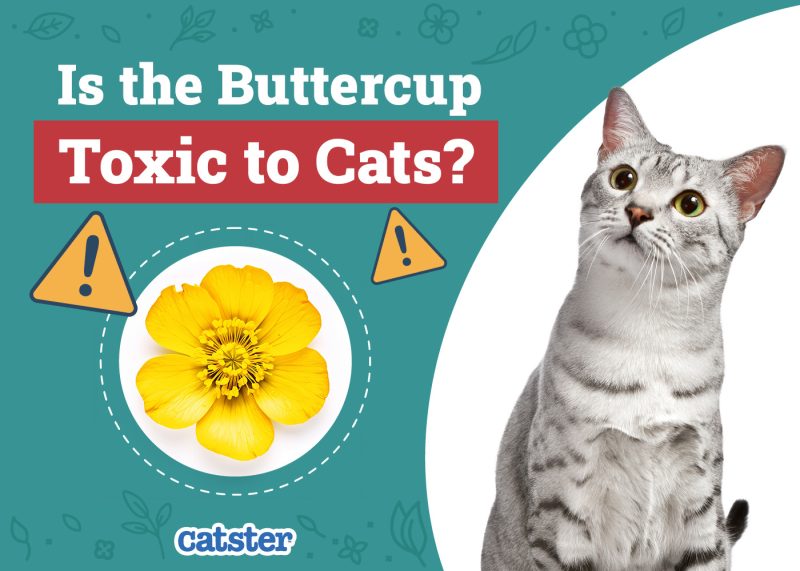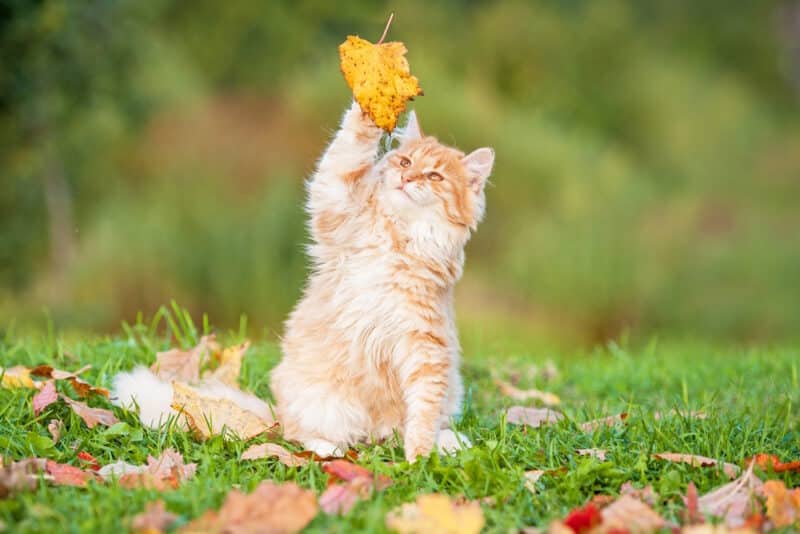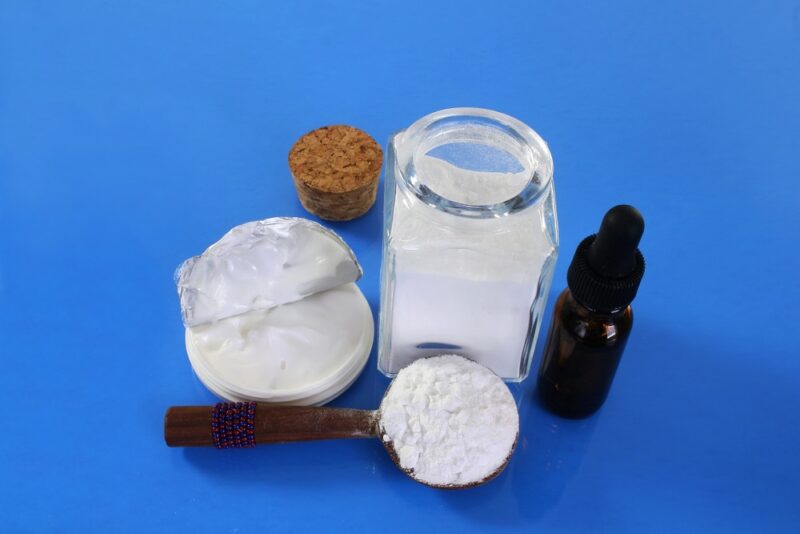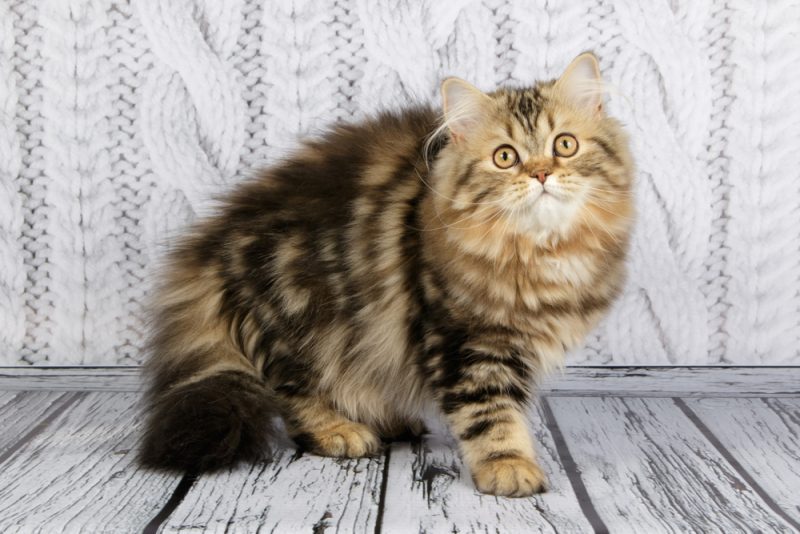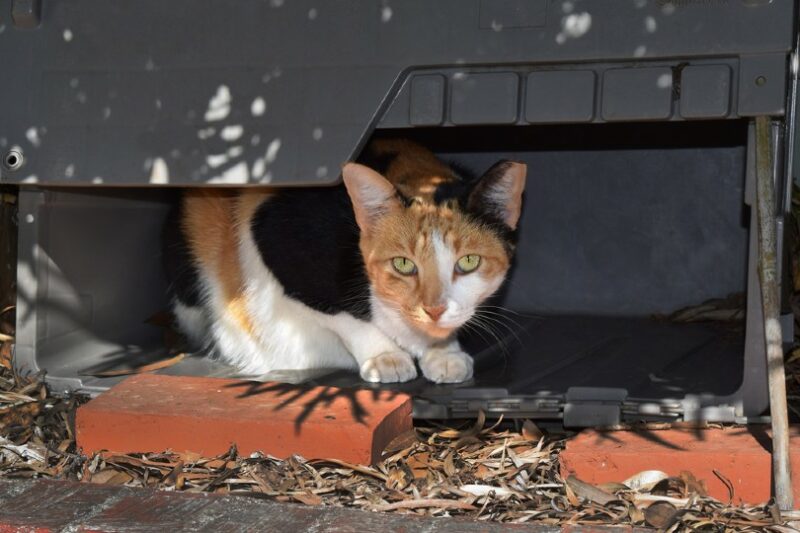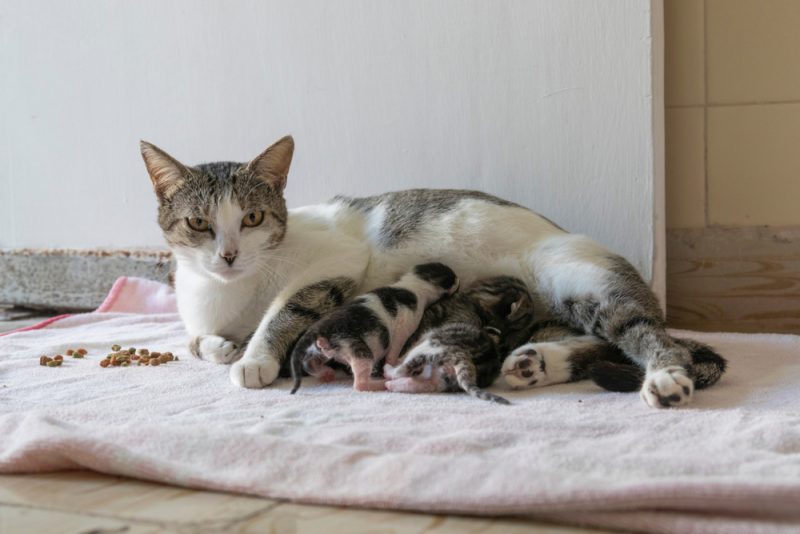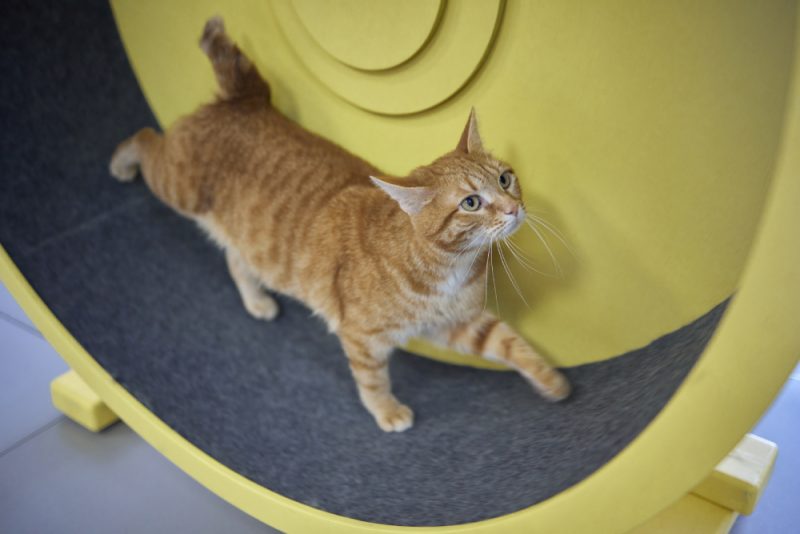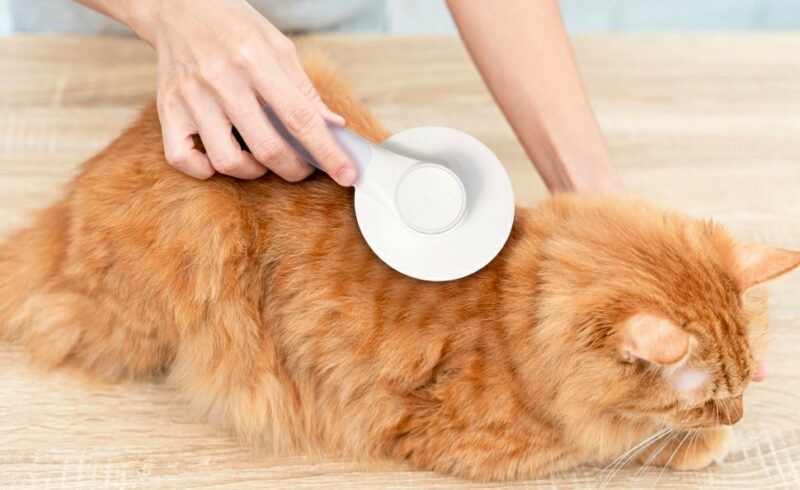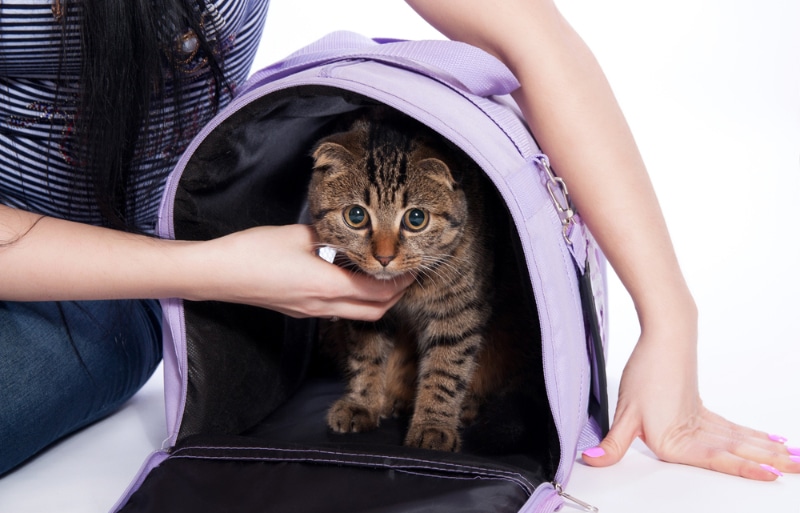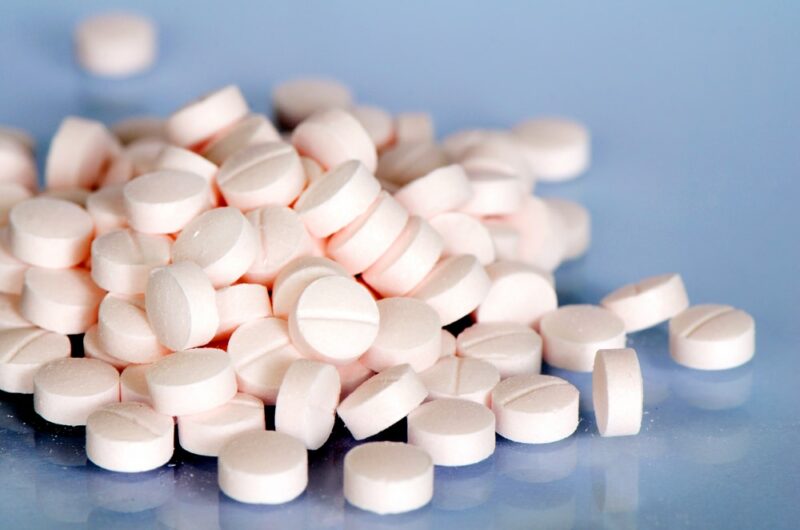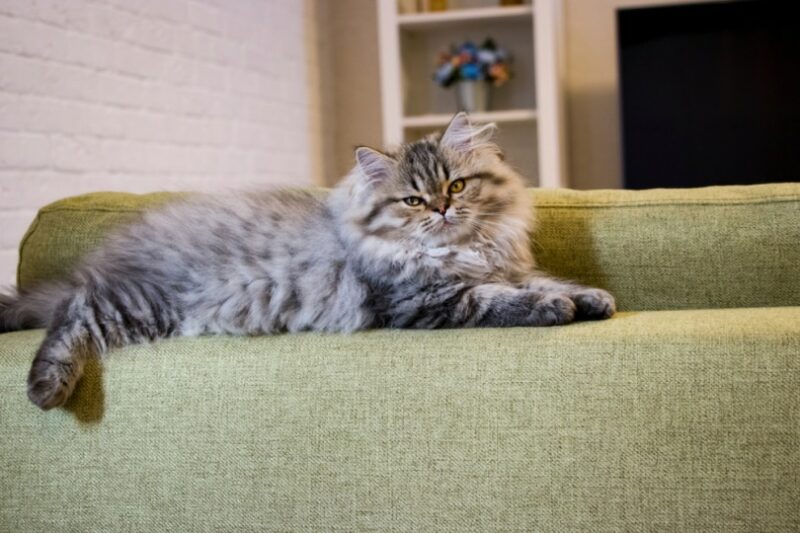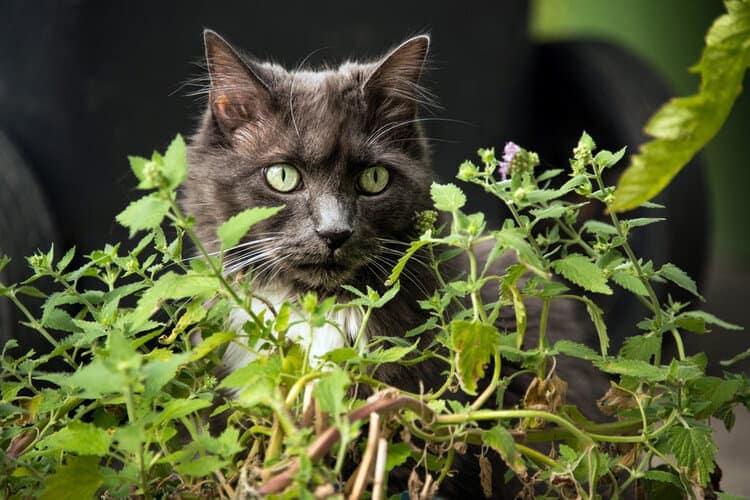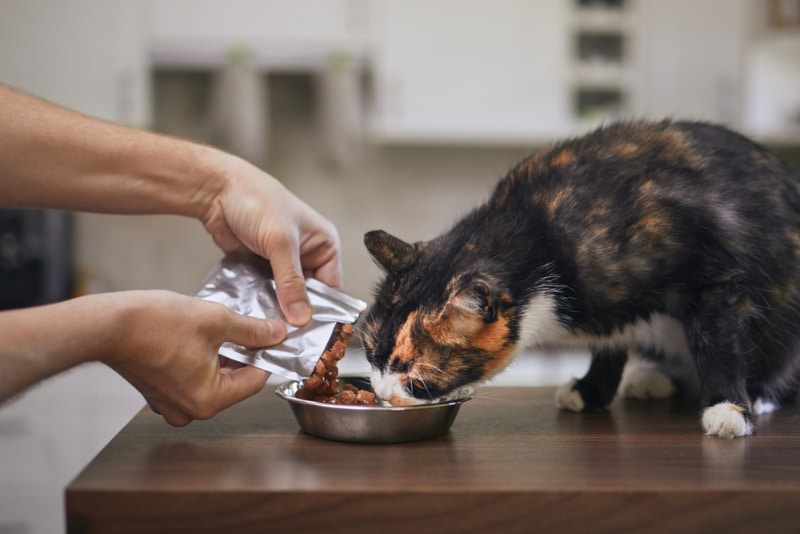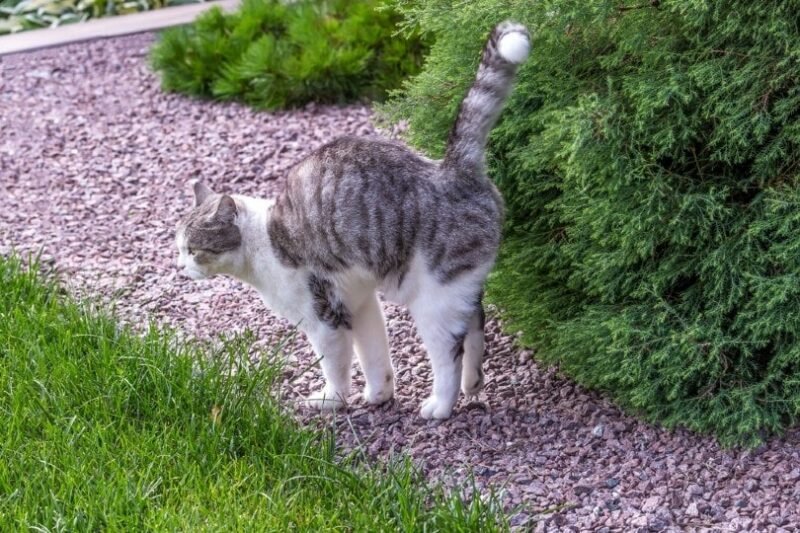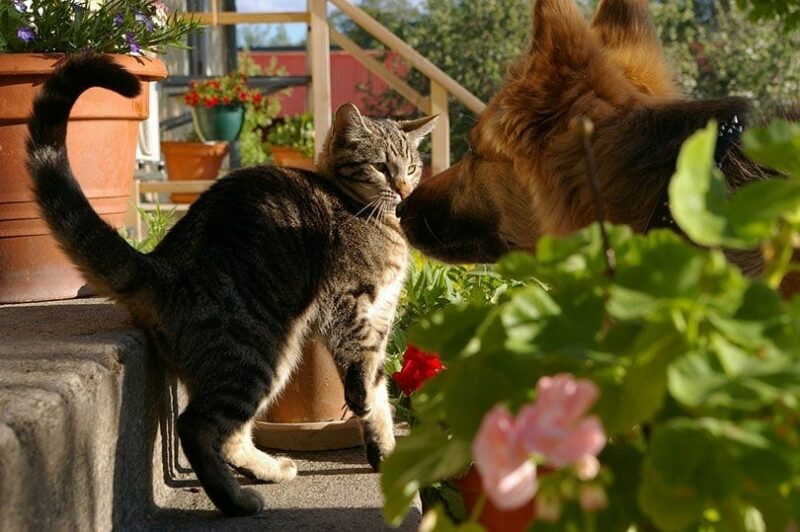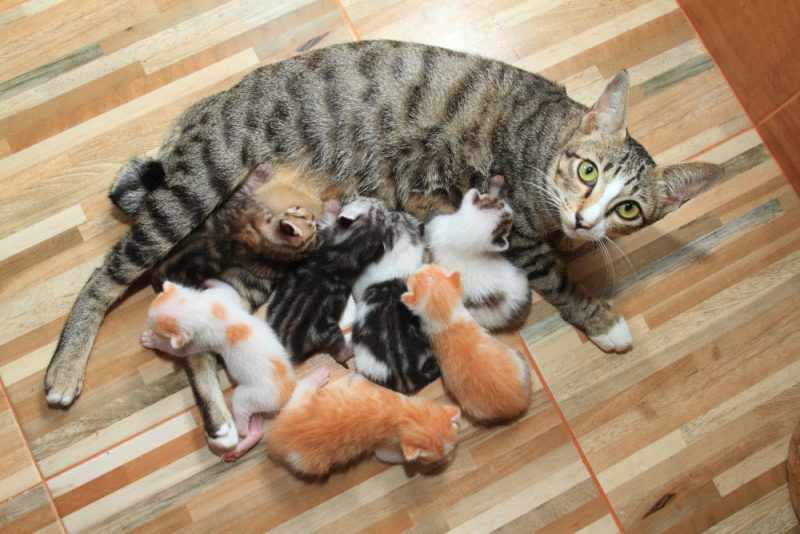In this article
The buttercup plant (Ranunculus acris), also known as butter cress or figwort, is a member of the Ranunculaceae family (that’s a mouthful!). It’s a common yellow plant in the US. If you grew up near them, you might have used them to paint your face yellow as a child. Don’t let that fool you into thinking they’re pet-safe!
The buttercup plant is actually quite dangerous to a variety of animals, including cats. Luckily, they have to eat more than a tiny bite to get sick, and they don’t particularly like the taste. Want to learn more? Let’s take a deeper dive.

About the Buttercup Plant
What It Looks Like
The buttercup plant is common all over the US. It’s an herbaceous perennial that typically blooms in the spring. The plant usually has bright yellow (butter-colored) five-petaled flowers with numerous yellow stamens around the greenish center. Each buttercup flower is about an inch wide. The leaves of this plant are dark green and glossy, and they grow in a basal rosette.
The stems of the plant are fragile and hairless, and they can grow up to 2 feet tall, which makes them look a little leggy, especially with such small flowers.
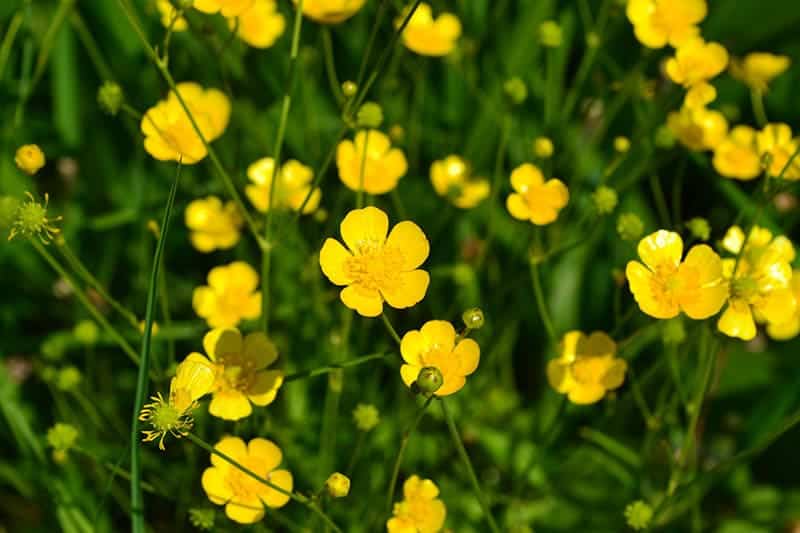
Where the Buttercup Plant Is Found
As mentioned before, the buttercup plant is found all over the world in damp habitats. They’re especially common in Europe, Asia, and North America. These plants can often be found in meadows, woodlands, and marshes. If you live near any of these habitats, there’s a good chance you’ll find some buttercups growing nearby. If you have any tall grass, abandoned property, or wild patches of land, you’ll likely see them.
They also grow in places like the side of the freeways, ditches, and the edges of wooded property. There’s a good chance you have then where you live, or not far away.

Is Buttercup Toxic to Cats?
The buttercup plant is toxic to cats. It contains a poisonous compound called ranunculin. Ranunculin is converted to protoanemonin when the plant is chewed or crushed, which can cause severe oral ulceration. All parts of the buttercup plant are poisonous to cats, but the flowers contain the highest concentration of protoanemonin.
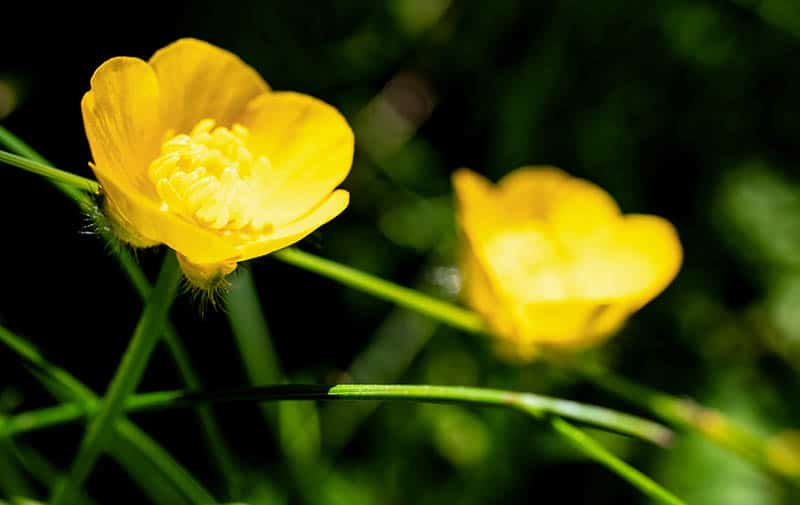
How Much Does a Cat Have to Eat Before They Get Sick?
Protoanemomin intoxication seems to be more dangerous in grazing animals, possibly because of the amount of plant ingested. It is not possible to determine the amount of plant material that is safe for cats. Buttercups generally do not pose a serious threat to cats, as their bitter taste and irritating effects prevent them from eating a large amount.
Signs Your Cat May Have Eaten a Buttercup Plant
If you think your cat has eaten any part of a buttercup plant, it is important to take them to the vet immediately.
- Drooling
- Pawing at the mouth
- Lack of appetite
- Vomiting
- Diarrhea
- Weakness
- Wobbly gait
- Depression
While most cats will recover from buttercup plant poisoning if they are treated quickly, it can potentially be fatal if left untreated.
If your pet is showing these signs, we suggest you speak to a vet.
If you need to speak with a vet but can't get to one, head over to PangoVet. It's an online service where you can talk to a vet online and get the advice you need for your pet — all at an affordable price!


Treatment for Buttercup Plant Poisoning in Cats
If you think your cat has eaten a buttercup plant, the first thing you should do is call your veterinarian. They may want to induce vomiting or do a gastric lavage. Your vet may give your cat charcoal to absorb the toxins. Your cat may also need to be given intravenous (IV) fluids, and your vet may want to run blood tests. In severe cases, your cat may need to be hospitalized for a few days.

How to Prevent Your Cat from Eating Buttercup Plants
The best way to prevent your cat from eating buttercup plants is to keep them away from any areas where the plants are found. If you have buttercups growing on your property, make sure your cat cannot access them. You should also be careful when bringing new plants into your home, as some potting soil may contain buttercup seeds.

The 3 Tips for Removing Buttercup Plants from Your Property
By following these tips, you can help keep your cat safe from buttercup plants and other poisonous plants.
1. The best way to remove buttercup plants on your property is to dig them up by the roots.
You can then dispose of the plants in a trash bag. If you don’t want to dig them up, you can also try spraying them with an organic herbicide. Be sure to keep your cat away from the area until the plants are dead.
2. Make sure your cat can’t access them until you remove them completely.
You can do this by keeping them in a fenced-in area or in pots that are too heavy for your cat to tip over. Regularly check your property for any new plants that may have sprouted up, as some seeds can blow in from other areas.

3. If you live in a rural area with a lot of outdoor or barn cats, you don’t have to live in fear.
Cats aren’t typically attracted to these plants and don’t usually eat them. Still, cats are curious and intelligent creatures, so it’s never out of the question.

FAQ
Can my cat eat buttercup plants?
No. While it’s true most cats won’t be attracted to these plants, you can never know for sure how much your individual cat may eat. Buttercup plants are toxic to cats. It’s safer to avoid this plant altogether.
How common is buttercup plant poisoning in cats?
Buttercup plant poisoning is relatively rare in cats, as they are not typically attracted to the plants. If they do take a bite, they usually don’t like the taste and never take another. Still, all cats are different. Some cats do eat plants that most other cats don’t like. Some cats have more severe signs than others.
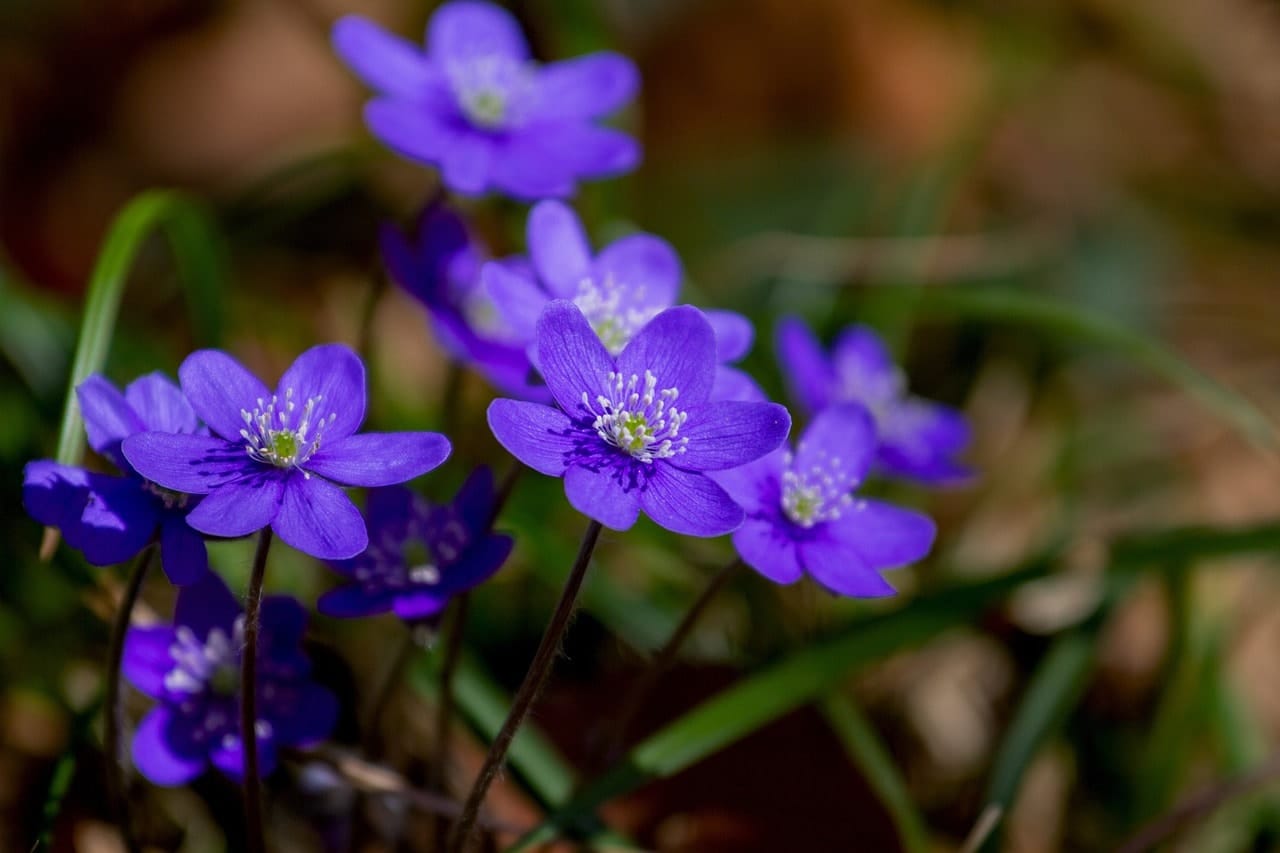
Can buttercup plants kill cats?
Buttercup plants can be fatal to cats if they are not treated quickly. If you think your cat has eaten a buttercup plant, call your veterinarian immediately. The cat will need to have eaten a lot of the plant to have serious signs. Another thing to consider is that a cat who is sick, young, or elderly will be at higher risk of deadly consequences.
Still, some cats like to hide when they don’t feel well, which is a concern for any outdoor cat owner.
What causes buttercup plant poisoning?
Buttercup plant poisoning occurs when a cat ingests the plant material, especially the flowers. The plant contains a poisonous compound called protoanemonin, which is converted to anemonin when the plant is chewed or crushed. This can cause severe oral ulceration in cats.
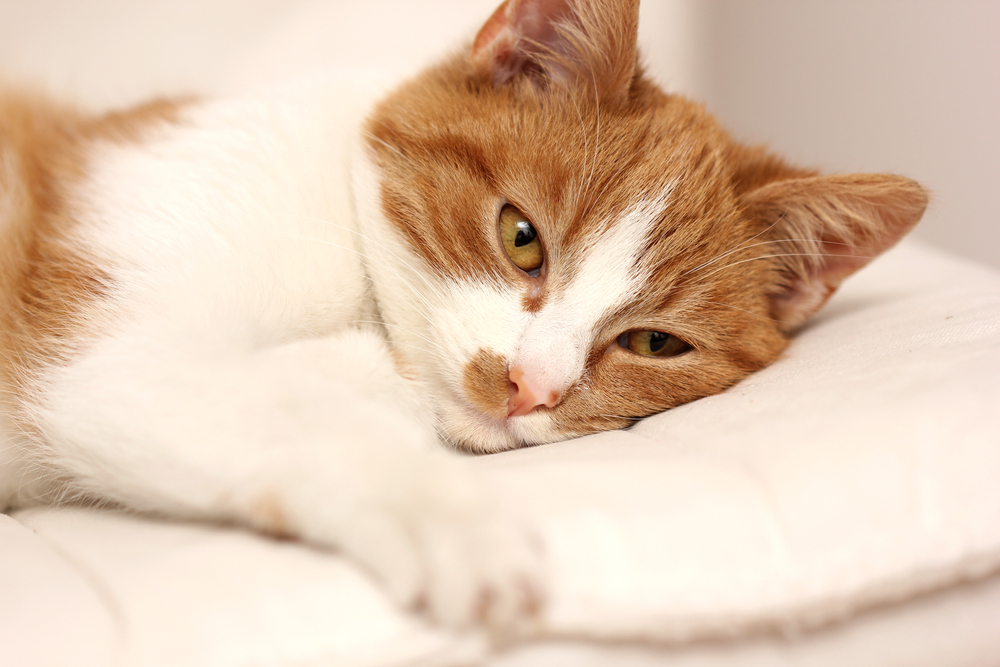
The Bottom Line
Buttercups are so common, yet cases of buttercup poisoning are rare. What it boils down to is that it’s unlikely your cat will eat a buttercup, but it’s easily possible. To give you some perspective, any outdoor cat is likely within the range of dozens, if not hundreds, of poisonous plants (and other things) every day that they never eat. Nature is full of dangers.
Most cats have good instincts, but some are inexperienced outdoors and don’t know what to stay away from. If you notice buttercup plants are growing on your property, go ahead and dig the buttercups out, just to be safe.
 Conclusion
Conclusion
The buttercup plant Ranunculus acris) is poisonous to cats and can cause severe oral ulceration, digestive signs, and wobbly gait. Your cat probably won’t eat them, but it does happen. If you think your cat has eaten a buttercup plant, call your veterinarian immediately. The best way to prevent your cat from eating buttercup plants is to keep them away from any areas where the plants are found. Regularly check your property for any new plants that may have sprouted up, as some seeds can blow in from other areas.
Buttercup plants are just one of many poisonous plants that can be harmful to cats. By being aware of the dangers and taking steps to keep your cat safe, you can help ensure a long and healthy life for your feline friend.
Featured Image Credit: Heiko Kalweit, Shutterstock
